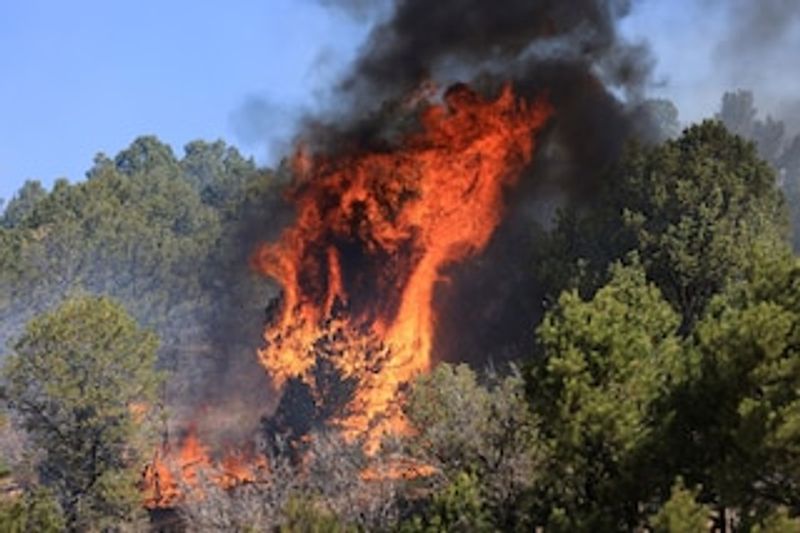
Miguel Gandert is unsure if his family’s 19th-century log cabin has been destroyed by a New Mexico wildfire, but he is concerned that the flames would wipe out an Indo-Hispano mountain culture that predates the United States.
The blaze is the country’s largest, threatening a line of settlements high in the Sangre de Cristo Mountains, where Gandert can trace his ancestors to European and Mexican settlers as well as Native Americans.
The fire has destroyed countless homes in the Mora valley, and on Sunday, severe winds endangered adobe mud-brick ranch houses, churches, chapels, and water mills going back to the early 1800s.
‘It’s almost like cultural genocide is going on, and the adversary is fire,’ said Gandert, a retired University of New Mexico professor who spent his boyhood summers fishing and assisting on his family’s farm in Mora.
According to authorities, some citizens’ ancestors have lived in New Mexico since the late 17th century, and more than half of Mora County’s 4,500 residents have stayed to defend their homes.
According to Gabriel Melendez, a Mora native, working-class families in the towns of Holman and Cleveland utilised their own bulldozers and machinery to scrape fire breaks with firefighters.
According to Melendez, they are motivated by ‘querencia,’ or love of place, which is rooted in a religious sensibility for the land they pray for in Catholic churches and chapels known as ‘moradas.’
Melendez, a 69-year-old retired American studies professor whose nephew stayed in Holman, said, ‘You’re losing inheritance, you’re losing the value of these properties. People will rebuild and attempt to mend the fabric of this broken civilization, but it will be a difficult task.’
Those who have evacuated are saddened, according to Patricia Marie Perea, whose relatives have moved to Albuquerque from San Miguel County.
Melendez, a 69-year-old retired American studies professor whose nephew stayed in Holman, said, ‘You’re losing inheritance, you’re losing the value of these properties. People will rebuild and attempt to mend the fabric of this broken civilization, but it will be a difficult task.’
Those who have evacuated are saddened, according to Patricia Marie Perea, whose relatives have moved to Albuquerque from San Miguel County.
Perea, an adjunct professor of Chicana and Chicano studies at the University of New Mexico, remarked, ‘Three hundred years of ancestry is there in my family. All of this makes leaving difficult, if not impossible.’

Post Your Comments